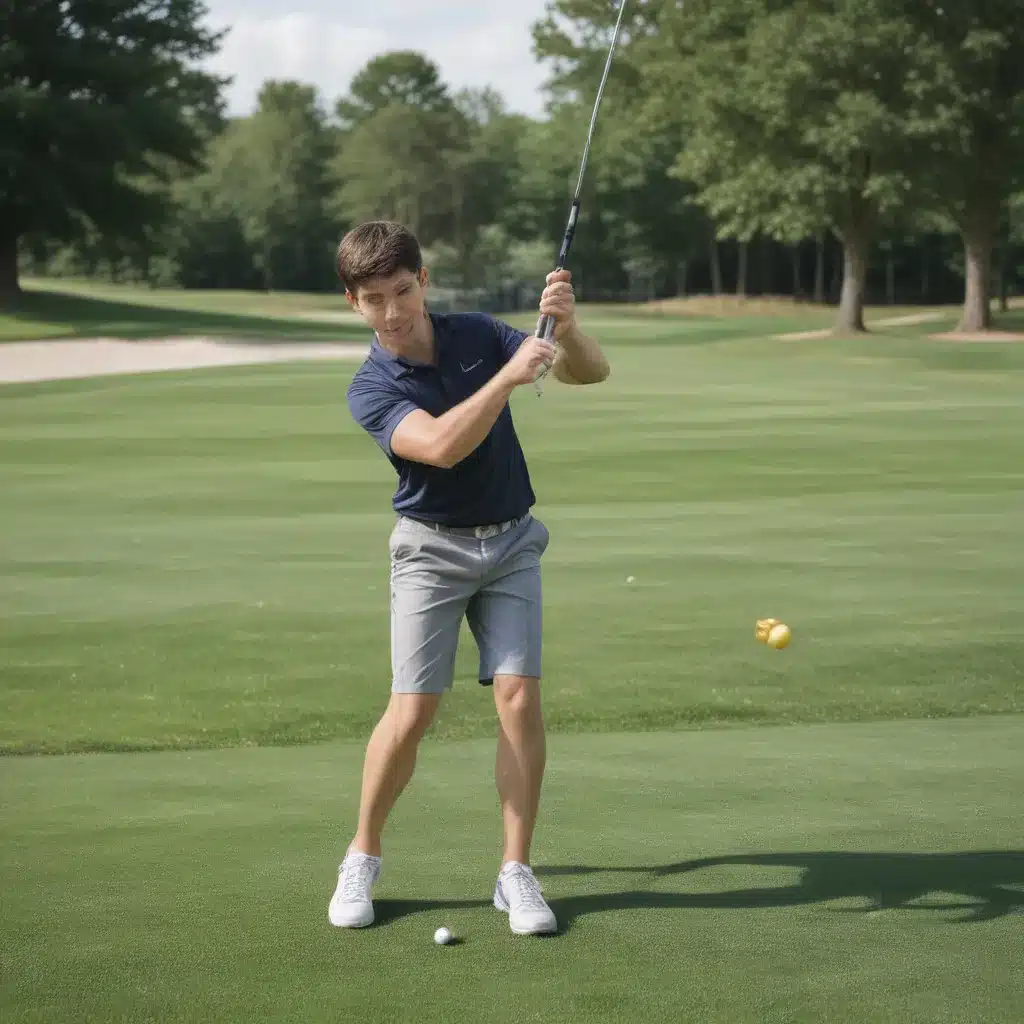Short Game Skills
As a lifelong golfer, I’ve always been fascinated by the art of the short game. There’s just something so satisfying about pulling off a delicate chip or a precise bunker shot to save par. But over the years, I’ve also seen how the short game can be the downfall of many golfers – myself included at times.
When I was a kid, I spent countless hours in my backyard, experimenting with all sorts of creative shots around the green. I’d intentionally put myself in tricky situations, like behind a tree or in the deep rough, and then try to figure out the best way to get the ball close to the hole. Those endless hours of “playing” really paid off, and by the time I was a teenager, my short game was the envy of my golfing buddies.
Somewhere along the way, though, I lost that sense of creativity and experimentation. I got too caught up in the technical aspects of the swing, worrying about things like wrist position and ball position. And as a result, my short game started to suffer. I’d find myself standing over a simple chip shot, paralyzed by thoughts of what my hands and arms should be doing, rather than just reacting and playing the shot.
It wasn’t until I read [1] that I had this revelation. The author, Jon Sherman, talked about how he had a similar experience, where his short game went from being a strength to a weakness as he got older. But he realized that the key was to get back to that childlike sense of play and experimentation.
So that’s what I started doing. I would set up random short game challenges for myself in my backyard – a pitch shot over a tree to a towel on the ground, a low runner to a bucket 20 feet away, a high lob shot to a tee stuck in the ground. I’d throw a bunch of balls down and just try different things, seeing what worked and what didn’t.
And you know what? It worked wonders. My short game started to come back, and I was hitting shots that I hadn’t been able to pull off in years. I was no longer thinking about technique, but rather just trying to find a way to get the ball close to the hole.
But it’s not just about the practice itself – it’s also about the mindset. As [2] explains, “Skill is important for a golfer because a round of golf requires you to adapt to all kinds of situations. You need to adjust your technique to each situation.” And that’s exactly what I was doing in my backyard – training my brain to be more adaptable and creative, rather than getting caught up in a one-size-fits-all approach.
Of course, technique still has its place in the short game. As [3] points out, “There is absolutely a place for proper technique in your golf game. It’s certainly an important fundamental.” But the key is to find the right balance between technique and creativity.
That’s why I’m such a big advocate for the kind of short game practice that Jon Sherman and others have described. It’s not about drilling the same shot over and over again, but rather about constantly challenging yourself with new and different situations.
And the best part is, it’s not just about improving your short game – it’s about rediscovering the pure joy of the game. As [4] so eloquently put it, “The point of the game is to get the ball in the hole in the fewest number of strokes. I practice my short game where I never hit the same shot twice, similar to what you have described above.”
So if you’re looking to take your short game to the next level, I’d encourage you to try this approach. Embrace the chaos, the creativity, and the pure fun of it all. Because at the end of the day, that’s what golf is all about.
Of course, it’s not just about the practice itself – it’s also about having the right tools for the job. And that’s where [5] comes in. They’ve developed a comprehensive short game skills test that can help you identify your strengths and weaknesses, and then focus your practice time accordingly.
But don’t just take my word for it. As [6] so eloquently put it, “I spent almost 2 hours yesterday trying to complete a challenge where I had to make an 18 yard tough bunker shot. My guy only had 1/10 on short game accuracy. It was nearly impossible because even perfect swings would spray left and right. I finally had an epiphany and raised my short game accuracy skill significantly. I made the bunker shot on my very first try after that.”
And that’s the power of focused, deliberate practice. By honing in on your specific short game weaknesses, you can make dramatic improvements in a relatively short amount of time. As [7] explains, “The key to lowering your handicap is the short game because more than 75% of the shots you will hit on the course are within 100 yards of the hole.”
So what are you waiting for? Grab a few balls, head to your backyard (or your local golf course, if you’re lucky enough to have access), and start experimenting. Who knows, you might just rediscover the pure joy of the short game, just like I did.
And if you need a little extra inspiration, be sure to check out [8], which provides a wealth of resources and drills specifically focused on improving your short game skills. Because at the end of the day, that’s what’s going to take your golf game to the next level.


